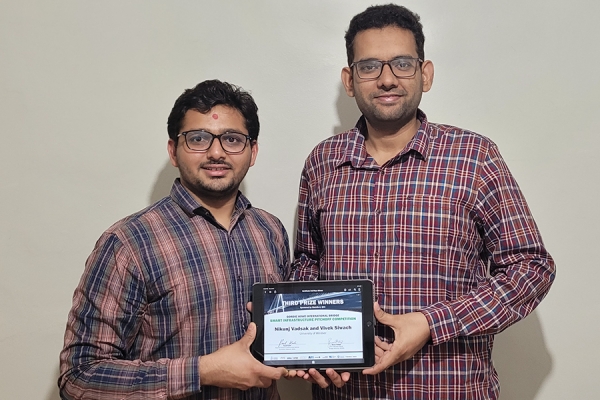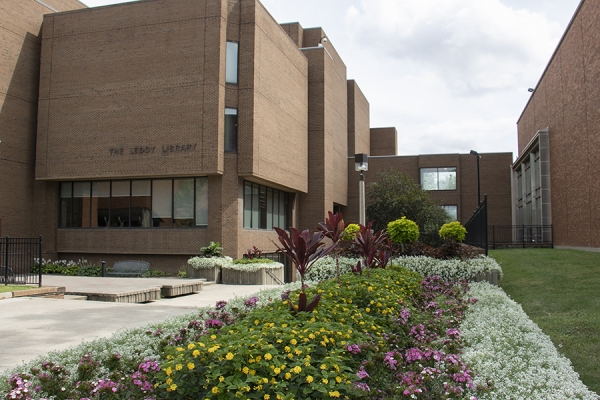 Assumption high school student Anastasia Nikolik won the inaugural Brain Bee hosted by the University of Windsor.
Assumption high school student Anastasia Nikolik won the inaugural Brain Bee hosted by the University of Windsor.
High school students from Windsor-Essex and surrounding counties put their neuroscience research and brain knowledge to the test at UWindsor’s first annual Brain Bee on June 4.
Brain Bee competitions are held around the globe and this year Jeff Dason, biomedical sciences professor; Michelle Bondy, experiential learning specialist; and Barbara Zielinksi, director of the behaviour, cognition and neuroscience (BCN) program; joined forces to organize the first ever held in Windsor.
“We were pleased with the turnout, especially since we were told to not expect a large number the first year, but with more than 20 registered, we had the second-highest turnout in Canada,” says Dr. Dason.
“It is encouraging that there is a fair amount of interest in neuroscience at the high school level.”
Students in grades 9 through 12 competed by answering questions about the brain, its function and dysfunction in a spelling bee format. In the months leading up to the event, BCN students Emilia Slijepcevic, Katarina Kolobaric, Alyssa Arundine, Lana Milidrag, Bianca Hutton, Owen Bortolin, Rebekah Taylor, and Angela Hormiz tutored the high school participants.
“Topics ranged from memory, sleep, intelligence, emotion, perception, stress, aging, genetics, neurotransmitters, neurology,” says Dr. Zielinski. “This is a great way to connect with bright high school students and open their minds to brain research as a possible career choice.”
The first-place winner, Anastasia Nikolik, is a grade 11 student from Assumption College Catholic High School. She says it was a fun way to expand her knowledge and a unique experience to get more students interested in neuroscience.
"Personally, I wasn't considering going into a neuroscience program before, but now I might,” says Nikolik.
Second-place was a tie and went to Grade 11 students Vanessa Wong and Rosalyn Agapito, both from Riverside Secondary School.
Nikolik’s classmate Connor Filiault, third-place winner, says he finds the brain and how it works really fascinating.
"It was definitely a good way to get familiar with the material we will be learning in grade 12 biology beforehand," says Filiault.
All four winners will receive scholarships ranging from $500 to $1,500, to go towards attending any science program at UWindsor.
Assumption science teacher Danielle Cooper (BSc 2017) is a graduate of the BCN program. She says gathering for virtual review sessions not only gave the students an opportunity to talk and discuss concepts that they were unsure of, but was beneficial for those feeling a bit lonely and distant during remote learning.
“I have participated in three different virtual contests with students this year, but the Brain Bee was unique in that it included a social aspect within the competition and it was nice that my students were able to gather virtually with like-minded youth,” says Cooper.
“The BCN program has had a huge impact in shaping me into the person I am today, and it was awesome to be able to share my love of the brain with my enthusiastic students and I’m proud of their accomplishments.”
The winners went on to compete in the CIHR Canadian National Brain Bee on June 5. At the competition virtually hosted by McMaster University, Hormiz made a video highlighting the UWindsor's BCN program and Taylor represented Windsor on a panel of neuroscience students from universities across Canada.
—Sara Elliott



